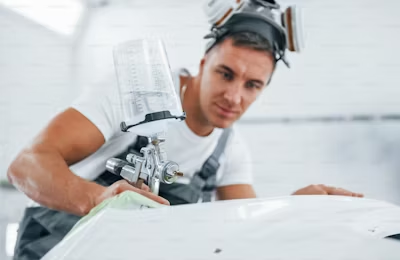Ensuring that the plumber you hire delivers high-quality work is crucial when you need plumbing work done. Poor workmanship can lead to expensive repairs, water damage, or safety hazards. Knowing what to look for can help you assess the plumber’s performance and make informed decisions. We will explore the key aspects to consider when determining a plumber’s work to ensure that your plumbing issues are resolved with the care and precision they require.
Clear Communication and Professionalism
The first indicator of a plumber’s competence is their communication and conduct. Before doing any physical work, observe how the plumber approaches your situation during the initial consultation. Are they asking insightful questions to understand the problem fully? Do they explain potential solutions in a way that is easy to grasp, without unnecessary jargon? Clear communication is essential in understanding the scope of the work and the costs involved, so a reputable plumber should be able to articulate the necessary steps to resolve your plumbing issues.
Professionalism is also a good barometer of the plumber’s quality. Punctuality, respect for your property, and a tidy workspace are all signs of a plumber who takes their work seriously. They should be dressed appropriately and have the necessary tools to start the job without needing constant trips to the hardware store. Moreover, a responsible plumber will clean up after completing the job, leaving the area as tidy as they found. Professionalism extends beyond the work and encompasses how the plumber treats their clients and environment.
Quality of Tools and Materials
The tools and materials a plumber uses can significantly affect the quality of the job. When assessing workmanship, observe the equipment the plumber brings to the site. Are they using modern, well-maintained tools, or do their tools seem outdated and poorly kept? Modern tools are more efficient and tend to produce more precise results, which is important for ensuring the longevity of any plumbing repair or installation. For example, a plumber who uses advanced leak detection equipment is committed to using the latest technology to get accurate results without damaging surrounding areas.
Additionally, the materials chosen for the job should be durable and appropriate for the specific task. For instance, the plumber should use materials like PEX or copper piping for pipe replacements, which are known for their durability and long life. Inferior materials may lead to early wear and tear, increasing the risk of future leaks or breakdowns. A good plumber should opt for cheaper materials; instead, they should advise you on high-quality options that fit your budget. In the long run, this saves you from frequent repairs and ensures the reliability of your plumbing system.
Attention to Detail in the Work
A sign of quality workmanship is the level of attention to detail displayed during the job. Plumbing work requires precision; even small mistakes can lead to costly consequences. During installation or repair, a plumber should meticulously measure and fit components, ensuring that pipes are properly aligned and securely fastened. Poorly connected pipes can lead to leaks, water pressure issues, or flooding. Moreover, a plumber who takes their time to inspect their work as they go along shows that they are invested in doing the job right the first time.
Attention to detail also means the plumber tests their work before completing it. After installing a new fixture or repairing a pipe, they should check for leaks, confirm water pressure, and ensure everything functions as expected. A rushed job where these final checks are overlooked often results in issues surfacing shortly after the plumber leaves. On the contrary, a plumber who carefully examines their work will catch any potential problems early, providing you with peace of mind that the work was done to a high standard.
Following Industry Standards and Local Regulations
Another important factor to consider when assessing Portland’s top plumber workmanship is whether they follow industry standards and local building codes. Plumbing work often involves safety concerns, particularly water heaters, gas lines, and sewer connections. If the plumber disregards or seems unfamiliar with these standards, this can lead to unsafe conditions that may endanger your household or property. A reputable plumber will know local regulations and perform the work accordingly.
For example, a plumber installing a new water heater should follow guidelines on proper venting, temperature settings, and pressure relief valves. Failure to adhere to these regulations can lead to malfunctions, leaks, or even dangerous situations like gas leaks or water heater explosions. Similarly, a plumber should ensure that the job complies with environmental standards to prevent contamination or improper drainage for sewer line repairs. Ensuring that your plumber respects these guidelines is crucial for the work’s safety and legality.
Assessing the workmanship of a reputable plumber involves looking at several factors beyond just the final result. You should consider their communication, professionalism, use of quality tools and materials, attention to detail, adherence to industry standards, respect for timelines, and customer feedback. A well-rounded assessment will help determine whether the plumber delivers quality work. By focusing on these aspects, you can make informed decisions and address your plumbing issues carefully.















